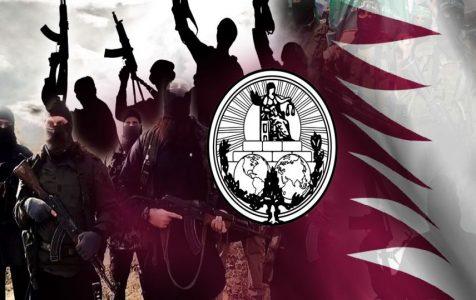
Egypt urge investigating Qatar’s support to terrorism in Libya
A number of Egyptian human rights advocates called on the Human Rights Council to set up an international commission to investigate Qatar’s violation of the Libyan sovereignty through providing support to armed terrorist groups,including the Muslim Brotherhood in Libya.
The Egyptian activists considered such attitude a violation of the United Nations’ 2006 Global Counter-Terrorism Strategy, which compels states’ leaders not to intervene in the sovereignty of other states, to respect their territorial integrity and political independence, and to refrain from financing and supporting terrorist and armed groups.
This came during a seminar held by an Egyptian delegation that included members of the Forum for Development and Human Rights Dialog, and Alexandria’s Women and Development Association,on the sidelines of the Human Rights Council’s 40th session in Geneva.
Saeed Abdel Hafez, president of the Forum for Development and Human Rights Dialog, said that the Egyptian state has faced extremist groups, which have attempted to destabilize the state and the local institutions, and to threaten the basic rights of Egyptian citizens, since 2013. He added that the state has also faced allegations by some politicized organizations that mis-describe the situation in Egypt.
Abdel Hafez called on the international community to shoulder the responsibility of confronting these militias and their violation of the citizens’ rights in Egypt, Libya and Yemen. He also urged the international community to back the legitimacy of institutions facing these extremist groups.
Concerning the Qatari violations, Mahmoud Bassiouni, a managing editor of the Egyptian Mobtada news website, said that there is evidence of the involvement of Qatar in supporting the armed groups inside Libya, adding that such attitude poses a threat to human rights in Libya and the neighboring countries.
Bassiouni added that the Qatar-backed armed groups are behind the terrorist attacks against many Egyptian Christians in Libya and Egypt. He referred to the attack against Egyptian Copts near the Monastery of Saint Samuel the Confessor in Minya governorate, saying that the armed group who killed them entered the country across the Libyan border.
Bassiouni pointed out that there is firm evidence that Qatar has been involved in supporting terrorism through sending aid to Libya, as the Qatari foreign minister admitted that the armed groups managed to seize the aid, and that the cars used by the militants were similar to that Qatar sent to the Muslim Brotherhood-affiliated groups in western Libya.
Bassiouni called on the United Nations mission to uncover the facts behind the Turkish arms ship that was seized while heading to Libya and to declare those responsible as war criminals.
Stopping Qatari fund and support of the armed groups in western Libya and supporting the Libyan National Army and Libyan state institutions will positively impact the human rights situation in Libya, which reached the worst level, according to Bassiouni.
He also referred to many forms of human rights violations in Libya, saying that some women are sold as slaves, and many children are trained inside terrorists’ camps. He said that such abuses endanger the human rights situation in Libya, neighboring states, and Southern Europe, and help increase illegal immigration cases from South to North.
Aida Nour al-Din, president of the Women and Development Association, called on the secretary-general of the United Nations to mark the anniversary of this year’s International Day for the Elimination of Violence against Women by setting the slogan “Stop funding terrorism”, stressing that funding terrorism and inciting violence are the most severe forms of violence against women.
She referred to Halawethom Zenhom, a woman who was almost killed in a terrorist suicide bombing in Cairo’s al-Darb al-Ahmar in February.
Atef Saadawi, a managing editor of Ahram’s Democracy magazine, said that the Western discourse on human rights currently enjoys the highest degree of politicization, adding that it is used primarily for political purposes unrelated to human rights.
This is reflected by some calls to preserve the rights of terrorists regardless their crimes, Saadawi said.
In June 2017, only one month before Libya’s eastern commander Khalifa Haftar declares full control of Libya’s second city Benghazi from Islamist and other fighters after a three-year campaign, Libya’s National Defense and Security Committee issued a terrorism blacklist including 75 people and nine bodies linked to Qatar.
Source: Egypt Today





